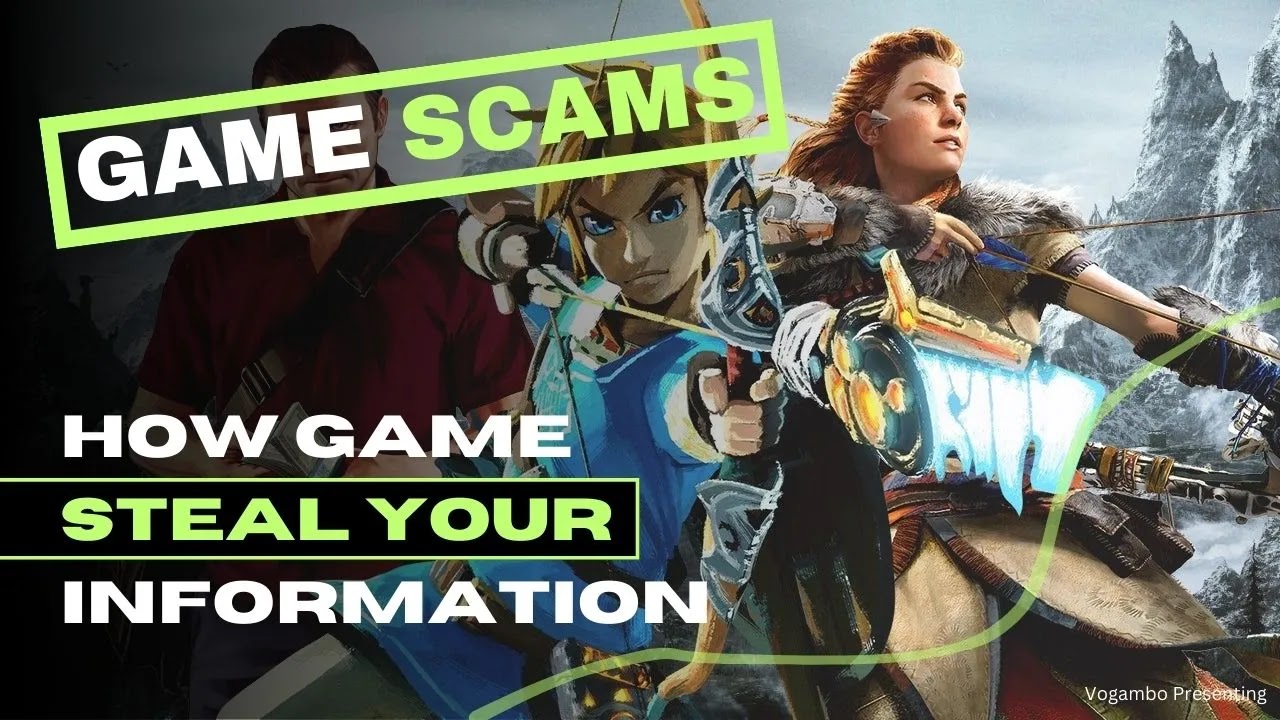Mobile and PC gaming have become increasingly popular, attracting millions of players worldwide. However, with the rise in popularity, scammers have also targeted gamers with various fraudulent activities. It is crucial to be aware of these scams and take necessary precautions to protect yourself. In this article, we will delve into the different types of game scams and provide valuable tips to optimize your online safety.
Types of Mobile/PC Game Scams:
- Fake Game Downloads:
Scammers utilize deceptive methods by creating counterfeit websites or fake app stores that offer popular games for download. Beware of downloading games from unofficial sources, as these downloads often contain malware or viruses that can compromise your device's security and steal your personal information.
- In-App Purchase Scams:
Certain games offer in-app purchases to enhance the gaming experience or unlock additional content. Scammers take advantage of this feature by creating fake in-app purchase options or manipulating the game to deceive players into spending real money without receiving the promised items. Be cautious when making in-app purchases and ensure you are using official channels to avoid falling victim to these scams.
- Account Phishing:
Scammers impersonate game developers or customer support representatives and send fraudulent emails or messages to players, requesting their login credentials or personal information. They exploit this information to gain unauthorized access to your account or commit identity theft. Remember, legitimate game developers or support teams will never ask for your account details or personal information via email or direct messages.
- Account Selling and Trading Scams:
In games where players can trade or sell in-game items or accounts, scammers may offer enticing deals to unsuspecting players. However, they often use stolen or fraudulent payment methods or provide fake or non-existent items, resulting in significant financial loss for the victim. Exercise caution when engaging in account trading or selling and ensure you are using trusted platforms or services.
- Fake Game Currency Generators:
Scammers create deceptive websites or tools that claim to generate free or discounted in-game currency. However, these so-called "generators" usually require users to provide their game account details or complete surveys, which can lead to account compromise or identity theft. Be wary of such offers and refrain from sharing your personal information or account credentials with unknown sources.
- "Pharming" Attacks:
Scammers employ malicious tactics such as creating fraudulent websites or manipulating DNS settings to redirect players to fake login pages resembling legitimate game websites. Their goal is to steal your account credentials when you attempt to log in. Always verify the legitimacy of the website before entering your login information and ensure you are visiting official game websites.
- Unofficial Giveaways and Contests:
Scammers create counterfeit social media accounts or websites claiming to offer free game items, currency, or access to exclusive content through giveaways or contests. However, these are often ploys to collect personal information or scam unsuspecting players. Exercise caution when participating in giveaways or contests and verify the legitimacy of the source before providing any personal details.
Protecting Yourself from Game Scams:
To safeguard yourself from game scams, follow these key guidelines:
-
Download Games from Official Sources:
Only download games from official app stores or verified sources to minimize the risk of malware or viruses.
-
Exercise Caution with In-App Purchases:
Be cautious when making in-app purchases and ensure you are using legitimate channels provided by the game developer.
-
Secure Your Accounts:
Strengthen the security of your game accounts by using strong, unique passwords and enabling two-factor authentication whenever possible.
-
Verify Legitimacy:
Before providing any personal or financial information, verify the legitimacy of websites, emails, or messages by cross-referencing with official game channels or contacting the game developer directly.
-
Stay Skeptical:
Be skeptical of offers that seem too good to be true, such as free in-game currency or rare items. If something seems suspicious, trust your instincts and avoid engaging with it.
-
Report Suspicious Activity:
If you encounter any suspicious activity or scams, report them to the game developer or platform to help protect other players from falling victim to similar fraudulent activities.
Conclusion:
As the popularity of mobile and PC gaming continues to soar, it is crucial to remain vigilant against game scams. By being aware of the different types of scams and implementing the necessary precautions, you can protect yourself and enjoy a safe gaming experience. Remember to download games from official sources, exercise caution with in-app purchases, secure your accounts, and report any suspicious activity. Stay informed, stay safe, and enjoy your gaming adventures!

















